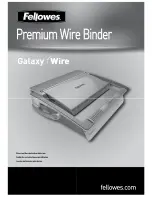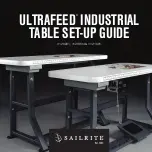
To Remove the Bobbin Case
(Operator being at the front of the machine)
Raise the needle to its highest point and remove the oscillating hook slide as
instructed above. Insert the nail of the forefinger of the left hand under the
latch (C, Fig. 3) and raise the latch just high enough to clear the edge at D, Fig.
3, then move it toward you.
Under no circumstances must the screw (E, Fig 3) be loosened for the
purpose of removing the bobbin case, as loosening the screw will bring the
bobbin case out of location and cause difficulty in the stitching operation.
(For instructions for adjusting bobbin case position bracket, see page 8.
Hold the bobbin case between the forefinger and thumb of the left hand, as
shown in Fig. 4. Tilt the bobbin case to the left and at the same time slightly
turn the right or forked end toward you so that it is moved out of engagement
with the sewing hook. Then tilt the bobbin case toward the right and remove
it. (See Fig. 4).
Summary of Contents for 99 Series
Page 1: ...SERVICE MANUAL FOR SINGER SEWING MACHINES Classes 66 99 and 185 ...
Page 5: ......
Page 12: ......


































